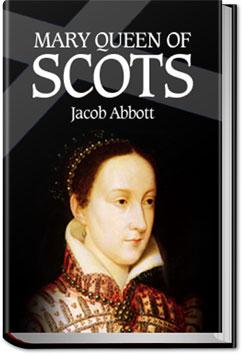UNLIMITED Audiobooks and eBooks
Over 40,000 books & works on all major devices
Get ALL YOU CAN for FREE for 30 days!
Mary Queen of Scots
Jacob Abbott
Book Overview:
Mary Stuart was Queen regnant of Scotland from 14 December 1542 to 24 July 1567. In the Western world, she is known as Mary, Queen of Scots.
Mary had claimed Queen Elizabeth I of England's throne as her own and was considered the legitimate sovereign of England by many English Catholics, including participants in the Rising of the North. Perceiving her as a threat, Elizabeth had her arrested. After 19 years in custody in a number of castles and manor houses in England, she was tried and executed for treason for her alleged involvement in three plots to assassinate Elizabeth. This volume is dedicated to Mary Queen of Scots.
Mary Stuart was Queen regnant of Scotland from 14 December 1542 to 24 July 1567. In the Western world, she is known as Mary, Queen of Scots.
Mary had claimed Queen Elizabeth I of England's throne as her own and was considered the legitimate sovereign of England by many English Catholics, including participants in the Rising of the North. Perceiving her as a threat, Elizabeth had her arrested. After 19 years in custody in a number of castles and manor houses in England, she was tried and executed for treason for her alleged involvement in three plots to assassinate Elizabeth. This volume is dedicated to Mary Queen of Scots.
How does All You Can Books work?
All You Can Books gives you UNLIMITED access to over 40,000 Audiobooks, eBooks, and Foreign Language courses. Download as many audiobooks, ebooks, language audio courses, and language e-workbooks as you want during the FREE trial and it's all yours to keep even if you cancel during the FREE trial. The service works on any major device including computers, smartphones, music players, e-readers, and tablets. You can try the service for FREE for 30 days then it's just $19.99 per month after that. So for the price everyone else charges for just 1 book, we offer you UNLIMITED audio books, e-books and language courses to download and enjoy as you please. No restrictions.
Try now for FREE!

"Love your service - thanks so much for what you do!"
- Customer Cathryn Mazer
"I did not realize that you would have so many audio books I would enjoy"
- Customer Sharon Morrison
"For all my fellow Audio Book & E-Book regulars:
This is about as close to nirvana as I have found!"
- Twitter post from @bobbyekat


